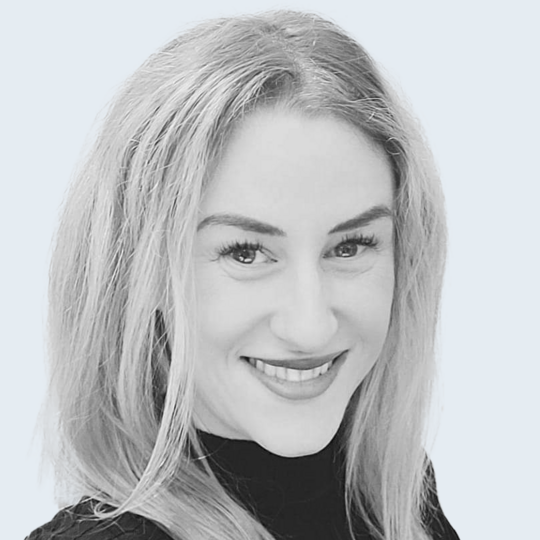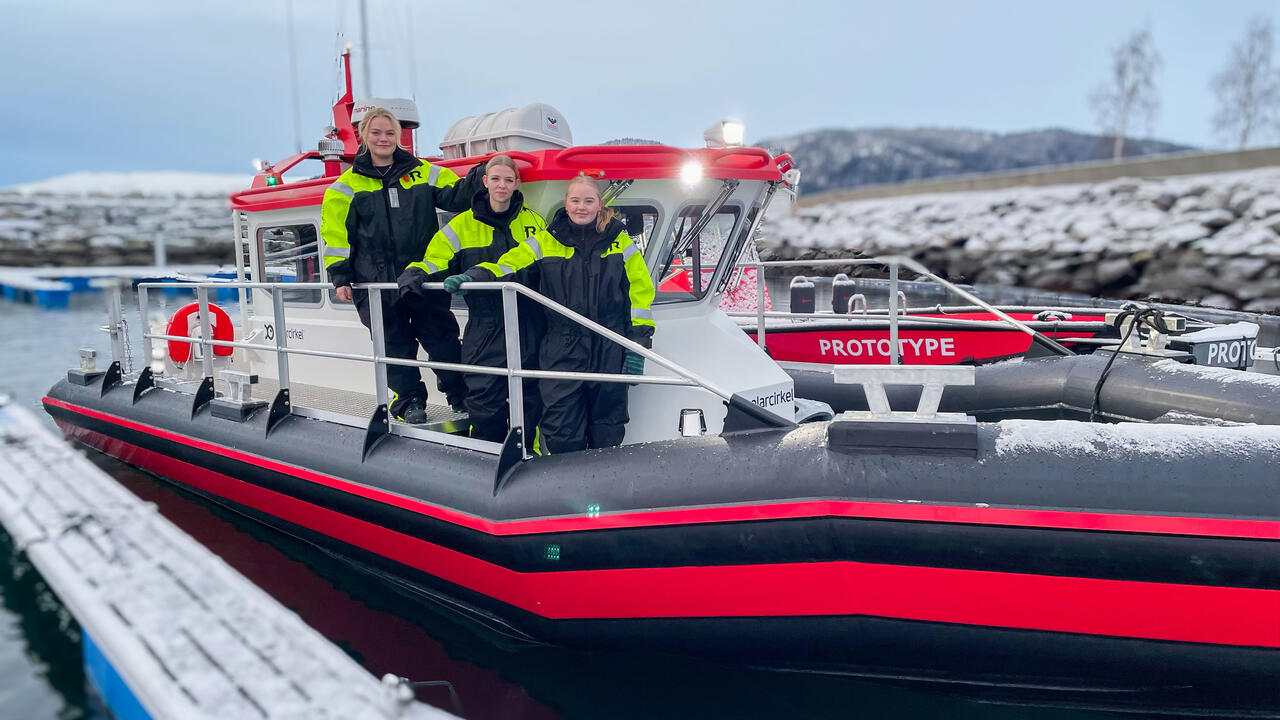
In Norway, specifically in Mo i Rana at AKVA group, the world's first boat hull made from climate-neutral raw materials is now being launched. This marks the beginning of a new era for sustainable aquaculture with the iconic Polarcirkel boats, known for their safety and quality. It demonstrates how AKVA group is continuously working to be pioneers in creating a better future.
AKVA group has received certification through ISCC PLUS to use raw materials based on bio-based and recycled raw materials such as forest waste and used cooking oil in the production of both workboats and fish pens. The boat remains identical, constructed with the same material, with a significant change: the virgin materials no longer come from fossil oil but are sourced from plants. This transition to sustainable sources makes the boat hull climate-neutral. The boat's main task remains to ensure the safety of employees at sea. The raw material will be purchased from the same suppliers as before, to ensure that the quality remains identical.
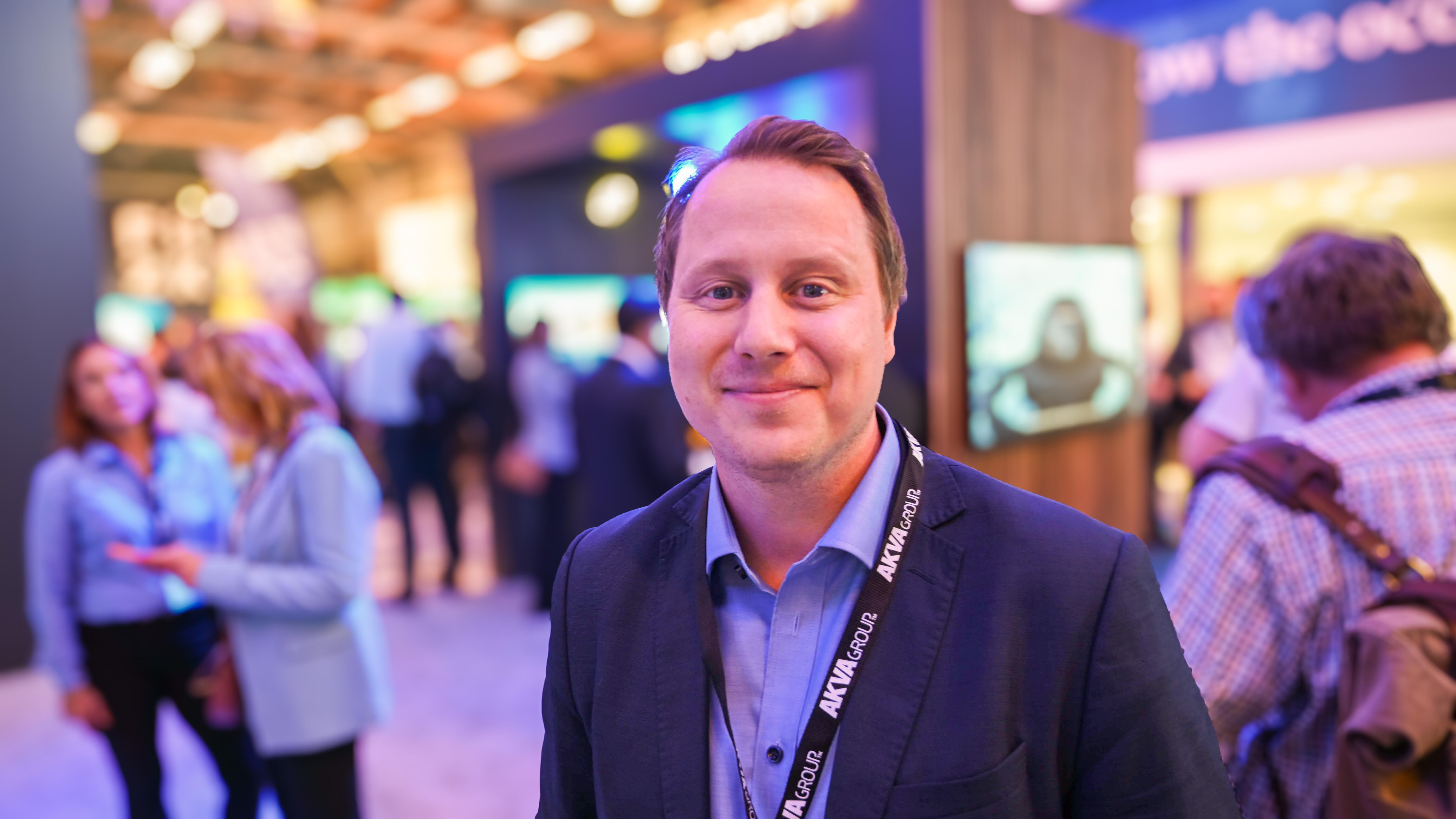 Freddy Bakken Braseth is pictured here at Aqua Nor 2023. Photo: AKVA group.
Freddy Bakken Braseth is pictured here at Aqua Nor 2023. Photo: AKVA group.
“Safety at sea is our main goal, and this is achieved just as effectively by using new raw materials. We want to offer aquaculture operators a more sustainable choice. By embracing greener alternatives, we contribute to giving them the opportunity to make environmentally conscious decisions and thus contribute to a more sustainable future - whether you opt for motor-driven or electric motor,” says General Manager of AKVA group Helgeland Plast Freddy Bakken Braseth.
Join AKVA group's webinar on February 12th, where Braseth will explain more about the Polarcirkel boats, the raw material used in the boat hull and other boat news. The webinar provides an opportunity to expand knowledge and get answers to questions. Sign up here.
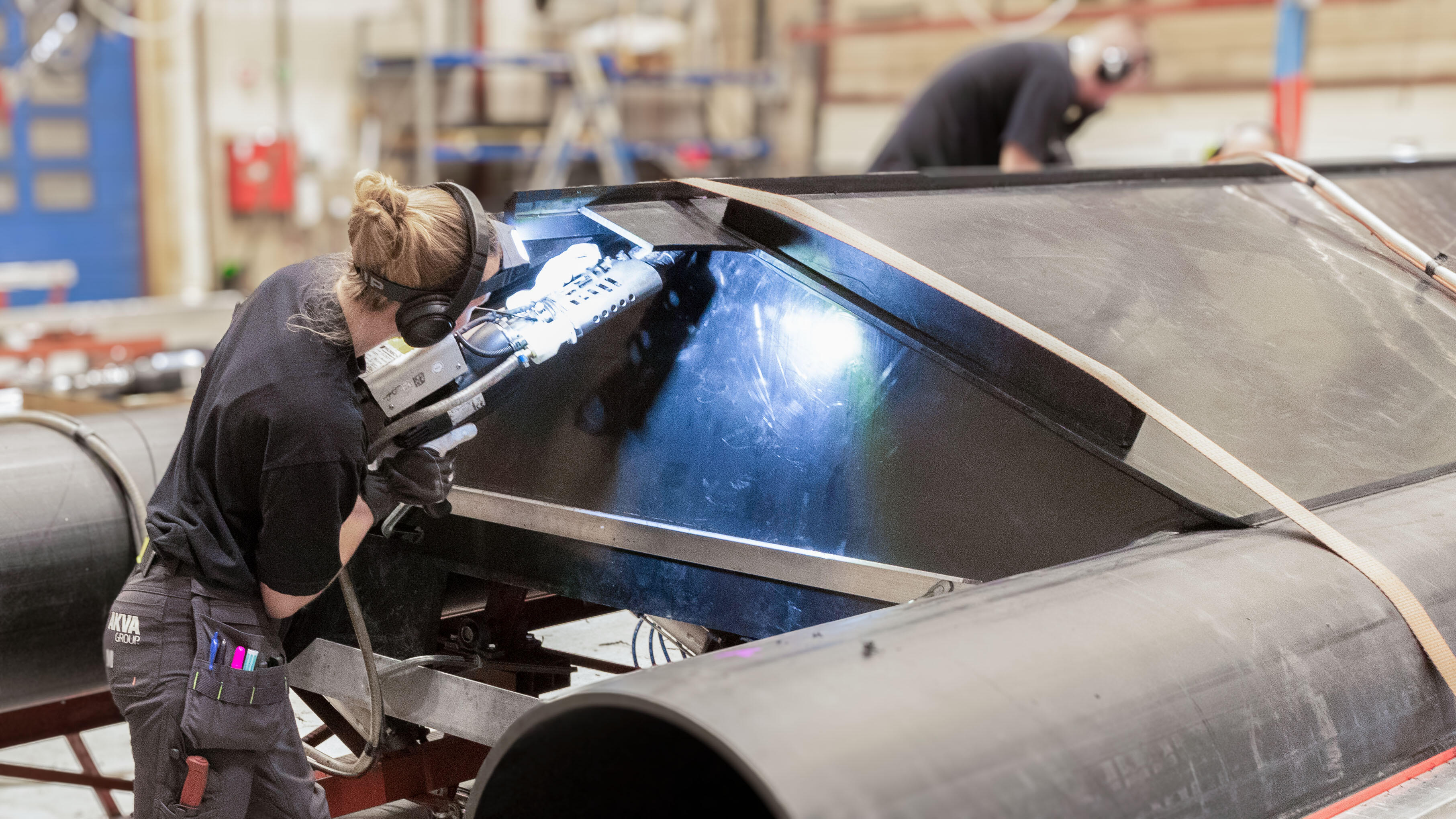
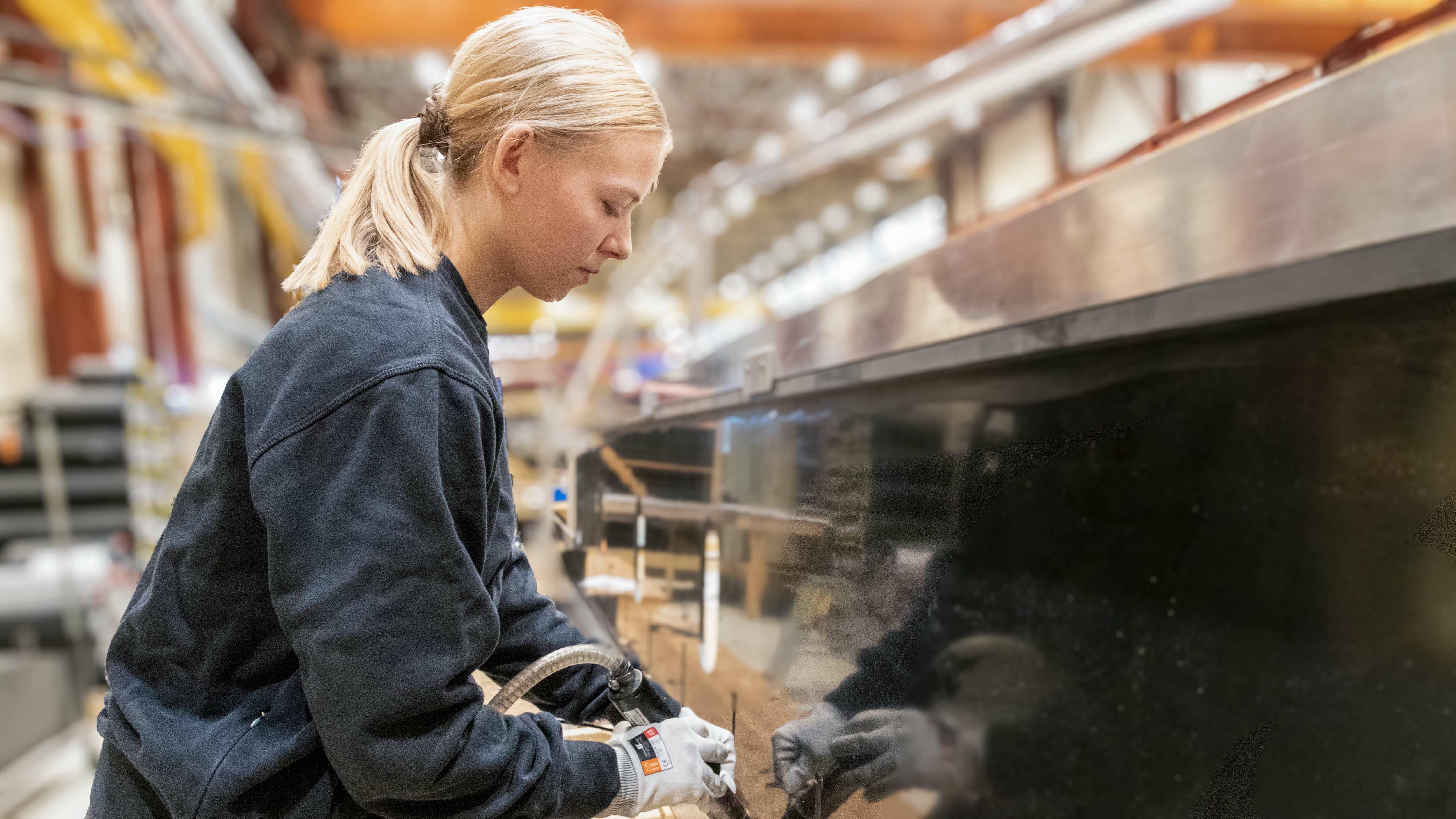
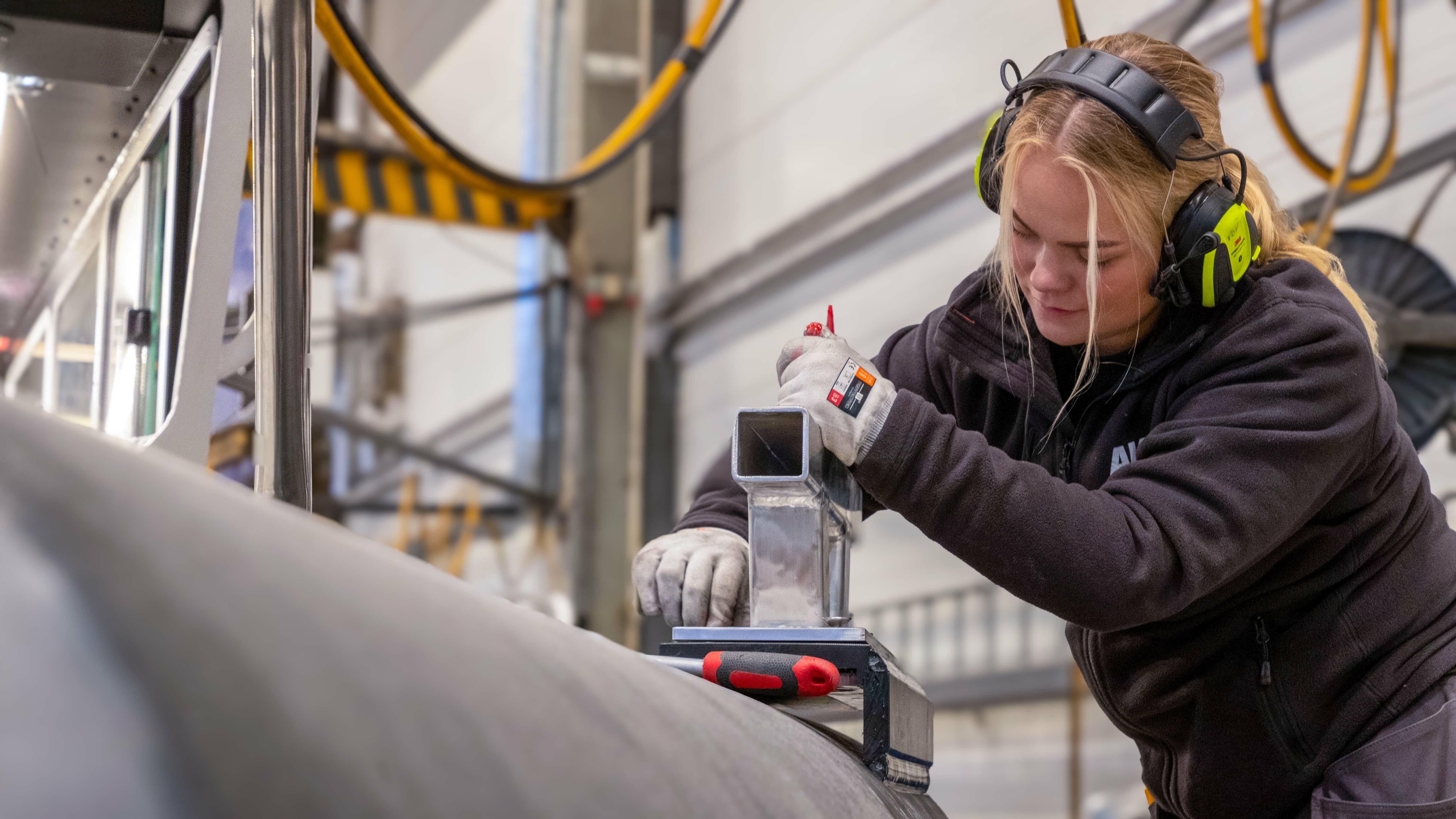
Apprentices in the production of Polarcirkel boats. Foto: AKVA group.
Environmental Responsibility
Through the integration of climate-neutral boat hulls in plastic, AKVA group has not only a technological advancement but has also created a product with a significantly reduced carbon footprint.
The global launch of the first climate-neutral boat hull and fish pen changes the perspective on resource utilization and underscores AKVA group's strong commitment to leading towards a better future for the aquaculture industry.
Through solid partnerships with customers and suppliers, AKVA group sets a standard for sustainability work.
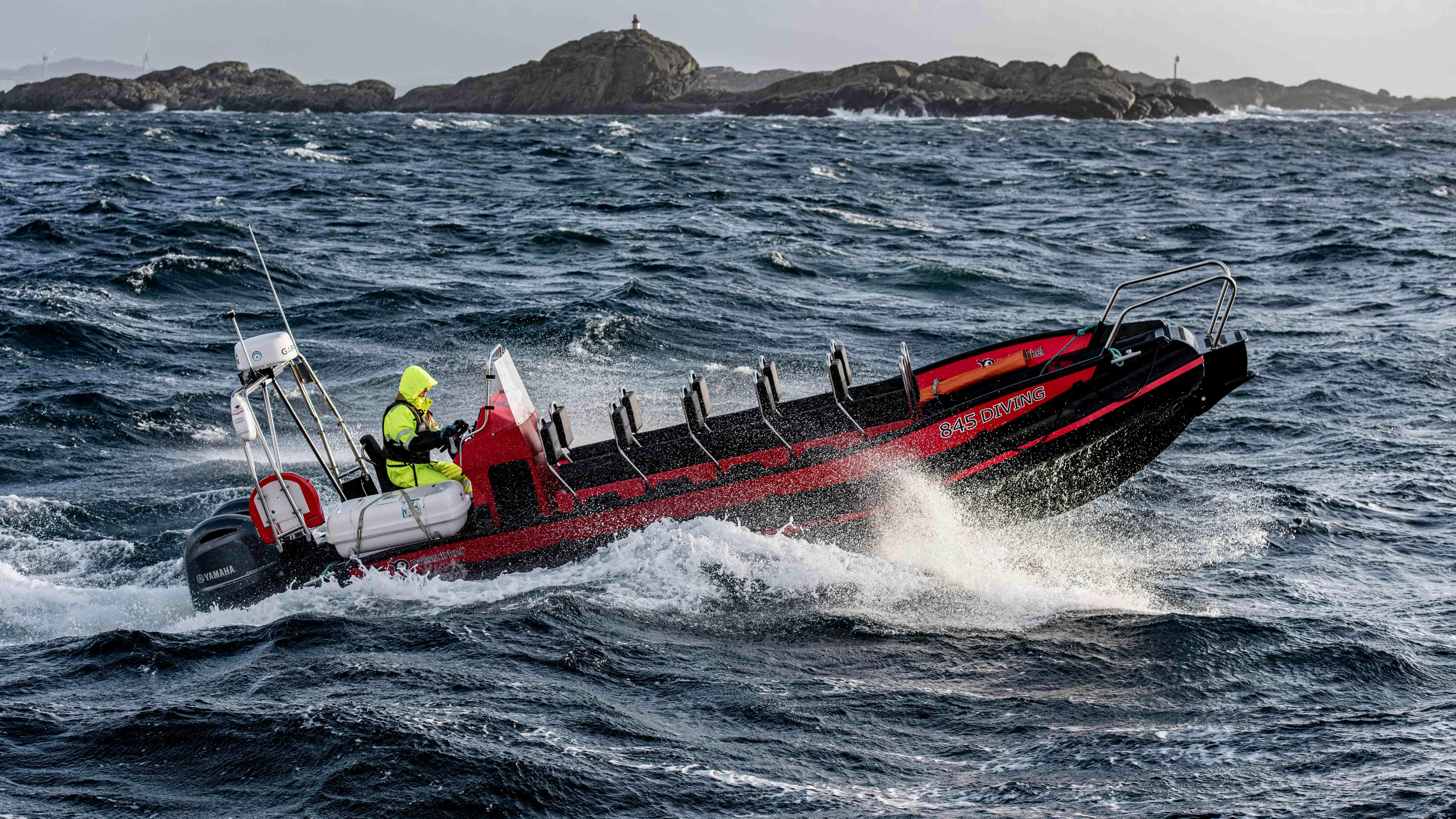 With its RBB hull (Rigid Buoyancy Boat), which is self-draining and equipped with polystyrene-filled pontoons, Polarcirkel offers high sea safety. Environmentally unfriendly Styrofoam in pipes is no longer used. Photo: AKVA group.
With its RBB hull (Rigid Buoyancy Boat), which is self-draining and equipped with polystyrene-filled pontoons, Polarcirkel offers high sea safety. Environmentally unfriendly Styrofoam in pipes is no longer used. Photo: AKVA group.
Norwegian Icon
Polarcirkel is handcrafted in Mo i Rana and has made its mark on the global market. The boats are known for their practical design, high quality, flexibility, and low maintenance requirements. With over 2000 boats in operation worldwide, they have become an icon in aquaculture and are preferred among various professions that require reliable and seaworthy vessels.
“It's not only fish farmers who use Polarcirkel. They are also used in service by sea-based industries, the oil and gas sector, rescue services, defense, Arctic tour operators, and even among recreational boaters. Polarcirkel is designed to withstand the toughest conditions, from icy -40°C to hot +55°C, offering unparalleled safety and reliability, whether operating in the Arctic or the tropics,” says Braseth.
AKVA group offers customized models for professional users such as the coast guard, navy, police, fire departments, and tour operators, so each boat can be tailored to specific needs. This adaptability has made Polarcirkel a sought-after brand across various industries. Several models of the workboats have also received a new stern profile, thicker material, and more shock absorption.
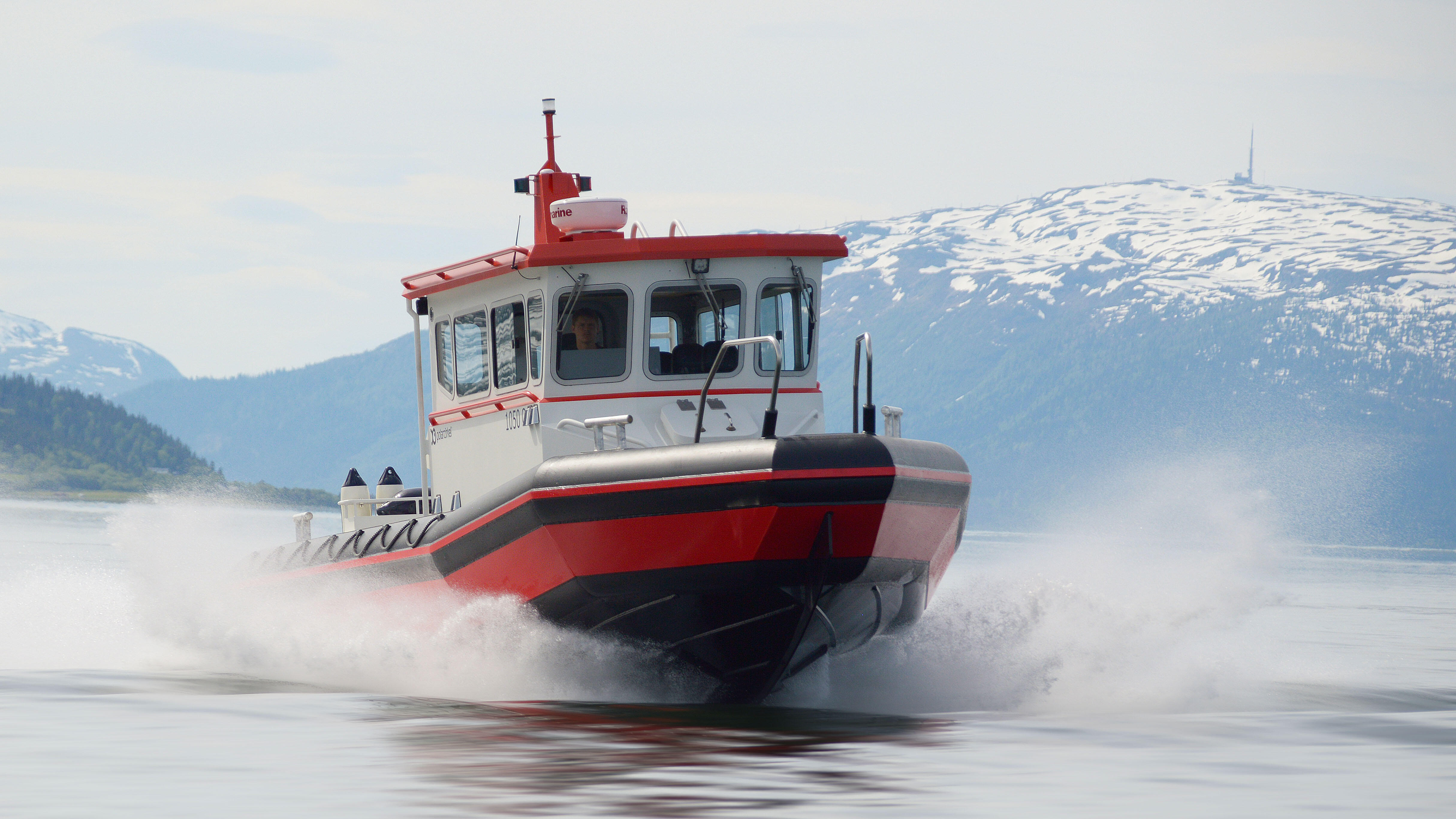 The boat's design enhances seaworthiness and reduces sea spray. AKVA group has made several smart improvements to Polarcirkel, such as raising the bow by 25 cm for better driving comfort, ensuring the highest standards of user-friendliness and safety. Photo: AKVA group.
The boat's design enhances seaworthiness and reduces sea spray. AKVA group has made several smart improvements to Polarcirkel, such as raising the bow by 25 cm for better driving comfort, ensuring the highest standards of user-friendliness and safety. Photo: AKVA group.
Next year, the world's first recycled fish pen will be ready for use at Nova Sea.
“AKVA group has truly made a climate leap by offering climate-neutral boat hulls and recycled fish pens! We look forward to the day when the fish pen is put into operation - it will be like opening the door to a new world, simply exciting,” says Braseth.
History
For approximately 50 years, Polarcirkel has been developed and improved in close dialogue with fish farmers. Helgeland Betongvarefabrikk (later renamed Helgeland Plast) was established in 1969 and developed the world's first plastic fish pen, Polarcirkel, in 1973. Later, Helgeland Plast became a part of AKVA group. In addition to boat and fish pen deliveries, they operate a pipe factory that produces pipes for everything from infrastructure to land-based facilities. Over the years, they have increased production capacity and invested significantly to improve their products.
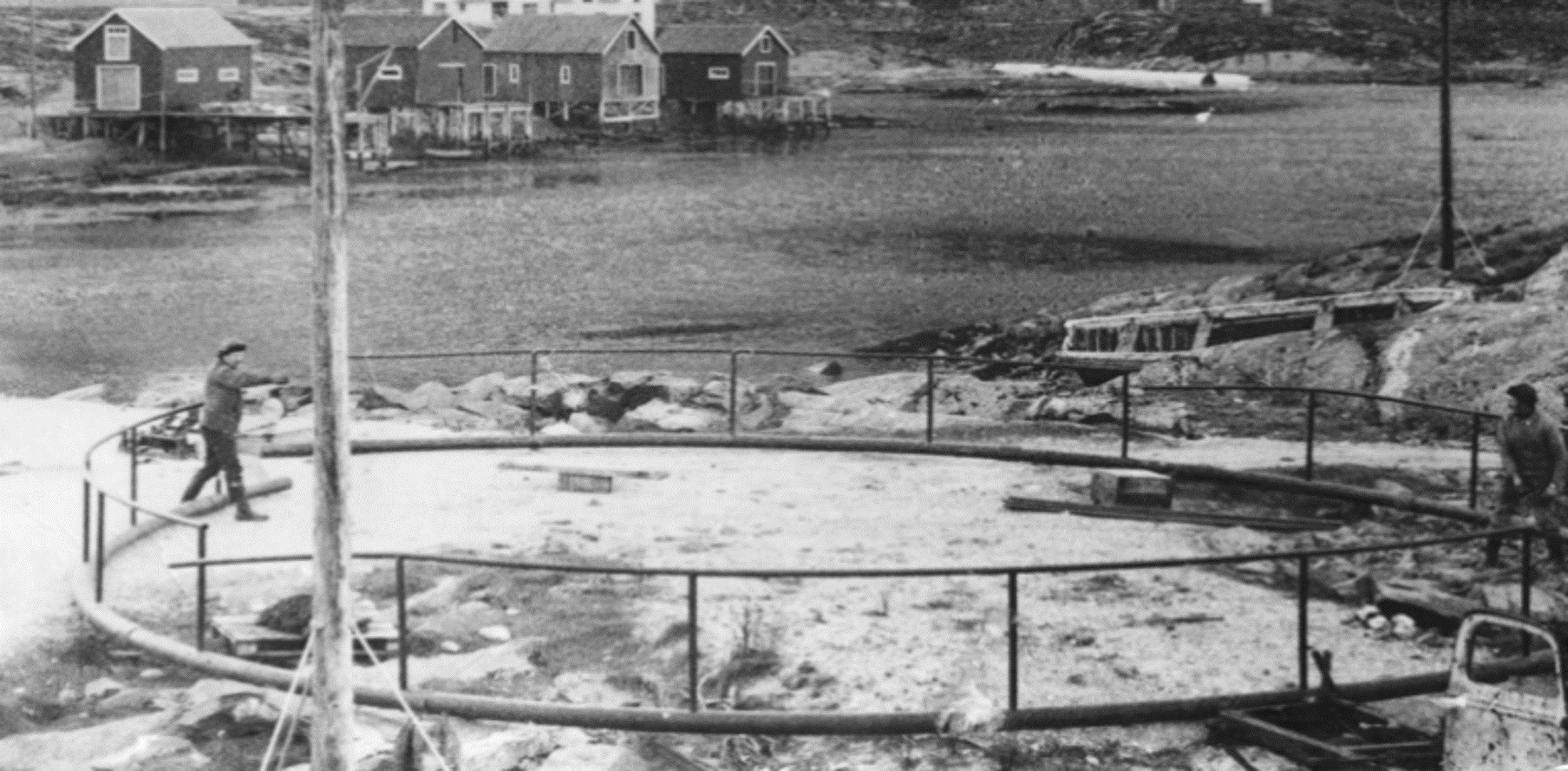 In Lovund (Norway), February 1974, the first Polarcirkel fish pen was delivered (from left: Halvdan Wang and Steinar Olaisen). Photo: AKVA group.
In Lovund (Norway), February 1974, the first Polarcirkel fish pen was delivered (from left: Halvdan Wang and Steinar Olaisen). Photo: AKVA group.
Now, AKVA group delivers boats, fish pens, and pipes to the aquaculture industry and municipalities. Recently, AKVA group launched the world's first fish pen made from recycled plastic, the result of a collaboration between Oceanize, Plasto, and Nova Sea, as part of their commitment to environmentally friendly solutions for the aquaculture industry. The project was supported by the SkatteFUNN R&D tax incentive scheme and the Norwegian Retailers' Environment Fund (Handelens Miljøfond).
Climate-neutral raw materials
Suppliers of raw materials to AKVA group Helgeland Plast have analyzed the carbon footprint of the material that can now be used in production following the ISCC PLUS certification. 90% of the raw material is bio-circular, which reduces CO2 emissions. The raw material is sourced from waste and residual streams. Rail logistics play a role in achieving nearly zero CO2 emissions for delivery to Mo i Rana.
LCA analyses indicate significant environmental benefits of using climate-neutral material, with a minimal carbon footprint of 0.004 kgCO2E/kg. This stands in contrast to the 1.9kg CO2E/kg generated by fossil materials. The reduction represents a saving in terms of carbon footprint.
“By including climate-neutral material into our Polarcirkel boats and pipe productions, we are creating an environmentally friendly practice, and giving new life to overlooked raw materials. This supports our commitment to sustainable technology development,” says Braseth.
Certified
AKVA Polarcirkel, in collaboration with suppliers meeting the ISCC PLUS certification requirements, will provide polyolefin products made with renewable raw materials that perform just as well as virgin polyolefins. These sustainable products are versatile, suitable for food contact and health applications, certified by ISCC PLUS, and support sustainability goals without compromising on quality or safety standards. They are based on renewable raw materials from waste and residual streams, contributing to the reduction of the carbon footprint and promoting the transition to a circular economy.
